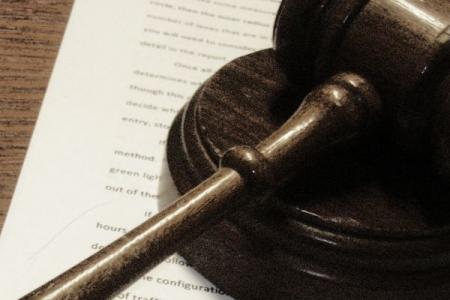Second chance for mentally-ill offenders
Her two children were aged six and nine when she was caught for stealing infant milk powder.
Instead of a one-week jail term, the single mother in her 30s was issued a mandatory treatment order (MTO) - where offenders undergo mental health treatment in lieu of jail time.
This was after she was found to be suffering from severe depression, said lawyer Amarick Gill, who was sharing about a client he met four years ago who told him she took the powder as she had been troubled by thoughts of the two miscarriages she suffered earlier that year.
"Her psyche was affecting her actions, and it led to the offence. In the end, she received a three-month MTO, and got the counselling and help she needed," said Mr Gill.
Anecdotes like that of the single mother lead lawyers and psychiatrists to welcome the expansion of MTO eligibility as part of 50 proposed changes to the Criminal Procedure Code and Evidence Act.
On Monday (July 24), the Ministry of Law announced the proposed changes, which include tweaks to the community sentencing regime, including expanding MTOs as a sentencing option for more offenders and offences.
If the changes are passed, the maximum MTO duration will be extended from 24 to 36 months. More offenders will also be eligible for MTOs and in-patient treatment can be made compulsory.
The treatment orders were introduced in 2010 as a sentencing option for those who offend due to their mental condition. Under the programme, the offender will attend psychiatric treatment instead of serving jail time.
Latest figures from the State Courts showed that the number of MTOs issued has averaged about 80 or so cases yearly in the last four years. Since it was rolled out in 2011, 489 MTOs have been issued.
Lawyers and psychiatrists describe MTOs as giving a "second chance" to offenders whose mental illness played a part in their offences. Some also hope to see more MTOs meted out in the future, where suitable.
Said lawyer Rajan Supramaniam: "With the increased treatment periods and mandatory in-patient treatment for some, the orders will be more effective."
Mental illnesses can get worse if left untreated, or be exacerbated by stress from jail time, he added.
"MTOs are problem-solving and focus on rehabilitation specific to individuals," he said, adding that such individuals usually commit minor offences. "For most... it is a wake-up call to get help," he added.
To be eligible for an MTO, offenders first undergo a suitability assessment at the Institute of Mental Health (IMH).
Besides being willing to undergo treatment and monthly appointments, the diagnosed condition must also be a contributory factor to the offending behaviour, said Dr Stephen Phang, clinical programme director of IMH's mandatory treatment programme.
He said: "(It is) an effective and targeted use of resources for the genuinely mentally ill, who would otherwise be simply incarcerated, which does not address the root of the problem."
But experts agreed not all issued with MTOs respond to treatment, and the orders have limitations.
According to IMH statistics, since MTOs were first initiated in 2011 to last year, 336 offenders have completed the programme. Among the 336, 36 had their MTOs revoked for breaching conditions of their order.
Private psychiatrist Lim Boon Leng, who sees a handful of patients each year seeking follow-up treatment after MTOs, said, in general, about 20 per cent to 30 per cent of those suffering from mental illness do not respond to treatment.
"Mental illness is just one factor out of many. There are a lot of factors that could lead someone to reoffend even after being given an MTO, such as stresses from family or society," said Dr Lim.
IMH's Dr Phang said there was no foolproof system to ensure patients do not reoffend. "There will always be a small percentage of individuals who may not benefit from MTOs."
Mr Rajan said expanding the MTO is "an enlightened approach that highlights the importance of identifying one's mental state and the value of treatment".
"For those who are serious about getting well, we need to treat them like patients and not criminals."
Get The New Paper on your phone with the free TNP app. Download from the Apple App Store or Google Play Store now



